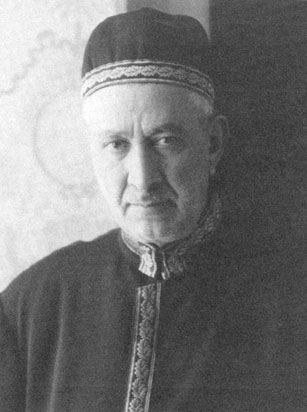- Yedidia Shofet
Infobox Person
name = Yedidia Shofet

birth_date = birth date|1908|11|14|mf=y (20Cheshvan 5669Anno Mundi )
birth_place =Kashan ,Iran
death_date = death date and age|2005|6|24|1908|11|14|mf=y (17Sivan 5765Anno Mundi )
death_place =Los Angeles ,California Yedidia Shofet (also spelled Shophet) was the former
chief rabbi ofIran and the worldwide spiritual leader of Persian Jewry.He was born on 14 November, 1908 in
Kashan ,Iran and was descended from twelve generations of Persian rabbis. Hakham Shofet was a remarkablerabbi who was reported to have known the entire Torah by heart and was a world authority on Jewish law and practice. He promoted unity and acceptance among all Jewish people.He died on 24 June, 2005 in
Los Angeles ; thousands attended his funeral. At his funeral, SephardicChief Rabbi of Israel ,Ovadiah Yosef , referred to Hakham Shofet as the "Prince of Torah." Hakham Shofet is buried at Eden Memorial Park in Los Angeles and Jews around the world continue to visit his grave to ask that he pray on their behalf.According to Shofet's 2001 memoirs, written in Farsi by Manucher Cohan, he was born in the central Iranian city of Kashan into a family with 12 generations of rabbis. Over the years, Shofet gradually gained prominence among Iran's Jews and non-Jews for his eloquent speeches and his ability to connect easily with all who approached him for help. Ultimately, he became a liaison and spokesperson for Iranian Jews before the shah, government officials and even Islamic clerics. There's no such equivalent position for an Iranian Jewish leader in the United States.
However, in Iran, Shofet commanded enough respect to intervene when Jews were in dire trouble, for example, with the Iranian government. He was instrumental in persuading the shah and other government officials in the early 1950s to allow Iraqi Jews, who had illegally left Iraq, to find temporary refuge in Iran before eventually immigrating to Israel, said Ebrahim Yahid, a close colleague of Shofet.
"We had many rabbis, teachers and hachamim in Iran, but he was the most open minded and most beloved of them all," Yahid said. "He was even respected by the most fanatic Islamic clerics in Iran who did not have friendships with Jews -- all because of his gentleness and humility."
Following the 1979 Iranian revolution, Shofet, along with thousands of other Iranian Jews, eventually immigrated to Southern California. While no longer working as a liaison for Iranian Jews, he continued to serve as a symbolic religious figure, urging Iranian Jewish families to preserve their Jewish traditions. In the United States, Shofet, with his son and other community leaders, helped establish the Nessah Center, first in Santa Monica and then in Beverly Hills.
Over the last five years, Shofet was gradually forced to retire from community work due to failing health. His son took over day-to-day leadership duties.
"Replacing Hacham Yedidia is impossible. The closest we can come to him is his very able son, Rav David Shofet, who has dedicated his life to Iranian Jewry like his father did," said Andy Abrishami, a Nessah board member and the elder Shofet's son-in-law. "It's hard to be a rabbi under any circumstances, especially when you're a rabbi for Iranian Jews, because their expectations are much higher, but he [David Shofet] , with his humility and dedication, has captured the Iranian Jews' favor."
Wikimedia Foundation. 2010.
